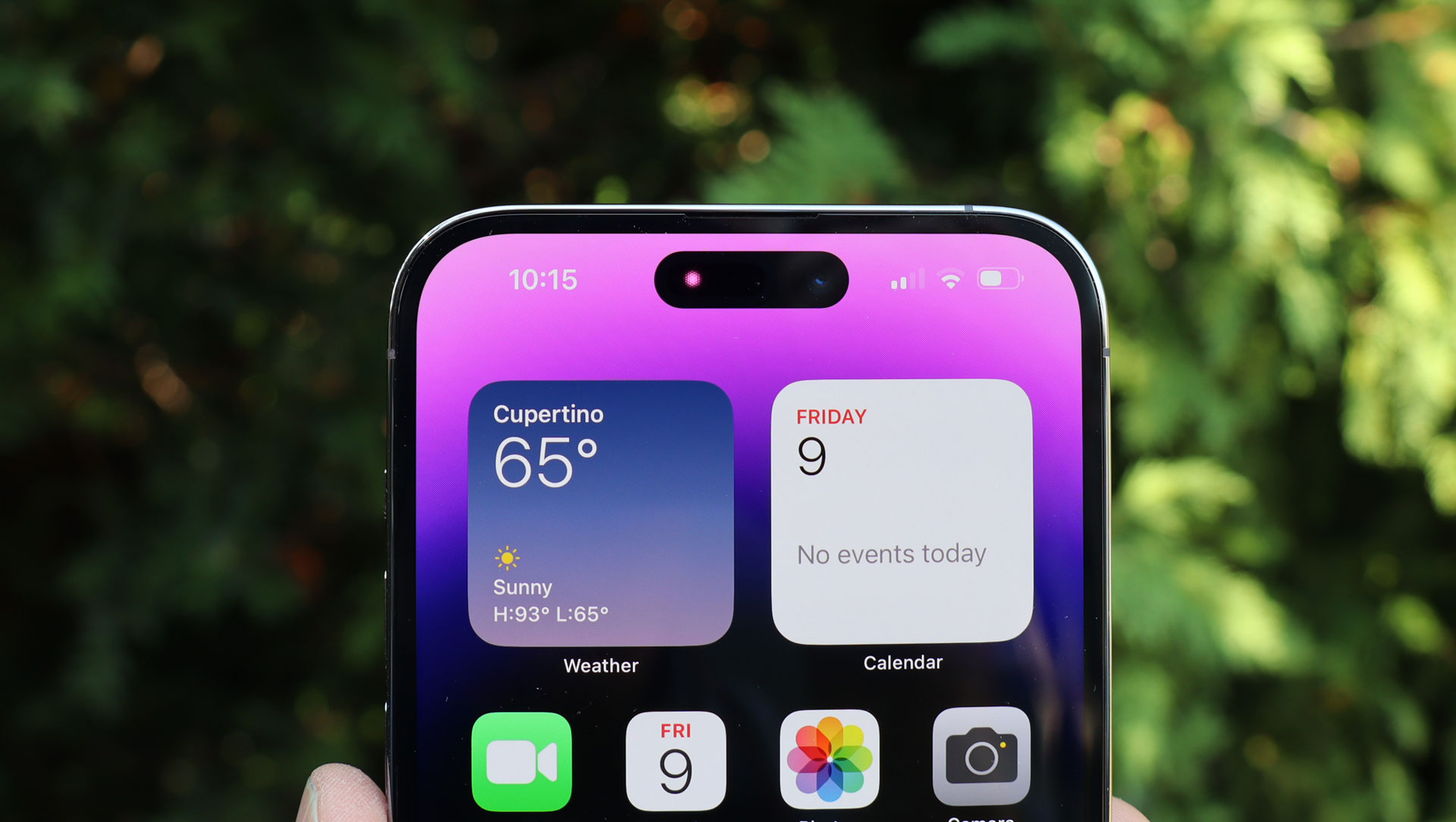iPhone 15 Pro Max could have the thinnest bezels ever – and that makes us nervous
Rumored price hike for iPhone 15 Pro models is starting to feel almost inevitable

Sign up for breaking news, reviews, opinion, top tech deals, and more.
You are now subscribed
Your newsletter sign-up was successful
Apple’s iPhone 15 Pro Max might just have the thinnest bezels ever seen on a smartphone, if a new rumor turns out to be correct.
This claim has been floated by Ice Universe, a well-known leaker on Twitter, who reckons that the bezel width of the iPhone 15 Pro Max will be 1.55mm.
iPhone 15 Pro Max will break the record of 1.81mm bezel black edge held by Xiaomi 13, and we measure that its cover plate black bezel width is only 1.55 mm.(S22 and S23 ≈1.95mm,iPhone 14 Pro 2.17mm) pic.twitter.com/9TBrVCGSCoMarch 17, 2023
As Ice Universe points out, that compares to the current record holder for the thinnest display bezels, which is the Xiaomi 13 at 1.81mm - a fact that helps make that handset look very slick indeed.
MacRumors, which spotted the tweet, clarifies that the Xiaomi 13 actually has 1.61mm bezels on three sides – it’s 1.81mm on the bottom edge only – but at any rate, Apple is still set to best either measurement (in theory).
If the 1.55mm bezel width comes to fruition, bearing in mind that the iPhone 14 Pro is 2.17mm, that’ll mean Apple will have slimmed down its smartphone by almost 30%, no mean feat.
This certainly wouldn’t harm the iPhone 15 Pro Max’s quest to look even more premium, and it’ll doubtless make for some nice bragging rights to stick in marketing materials.
The source is a relatively reliable one here, and of course, we’ve already heard from the rumor mill that both iPhone 15 Pro models could get thinner bezels (with curved edges), which lends weight to this speculation.
Sign up for breaking news, reviews, opinion, top tech deals, and more.
Analysis: A seriously smart looking handset – but at what cost?
Assuming this is Apple’s intention, bezels that are nearly a third slimmer - and indeed, the thinnest in the world - will obviously make for a PR selling point, as mentioned. But do we really need this?
That’s a rather subjective thing. Some may fret over whether incredibly trim bezels might not help on the fragility front. Others may feel that the iPhone already has pretty svelte bezels, and that this is a needless ‘upgrade’. To be fair to Apple, though, slimming down the bezels to almost a vanishing point level will likely boost the aesthetic appeal in terms of premium expectations. And here’s where we get a bit worried that this could be tied up in matching premium pricing.
Recently, buzz from the grapevine has indicated that Apple intends to increase the price tags on the iPhone 15 Pro and iPhone 15 Pro Max (which, at least in the US, would be the first price hike for Apple’s top-end handsets since the iPhone X debuted way back in 2017).
And this news of a record-breaking display, bezel-wise, is another hint that the bill of materials for the iPhone 15 Pro models is going to be pushed up – and that the retail price tag could follow that lead.
Other rumors that point to the premium nature of the iPhone 15 Pro Max’s display include speculation that it might use a next-gen Samsung panel which could be super-bright and seriously high quality. And furthermore, we’ve been hearing about a way speedier A17 Bionic SoC, more RAM (8GB, up from 6GB) for the iPhone 15 Pro versions, plus a periscope camera (for better optical zoom). Oh, and there’s the small matter of that titanium frame also weighing in to increase manufacturing costs…
So, the price of the iPhone 15 Pro models is set to go up? Yes, we can believe that, particularly when you consider the specter of inflation, and the fact that there’s been no price movement at the high-end for Apple’s smartphones in six years (in the US, anyway).
Indeed, the more we hear on the grapevine about Apple pushing for this new feature, or jazzing up this or that element of the chassis or display or camera, the more it seems that a price hike is starting to look not just likely, but pretty much inevitable, at least for Pro versions of the next-gen iPhone. The vanilla flavors may be a different story - but either way, we'll almost certainly need to wait until September to find out.
Darren is a freelancer writing news and features for TechRadar (and occasionally T3) across a broad range of computing topics including CPUs, GPUs, various other hardware, VPNs, antivirus and more. He has written about tech for the best part of three decades, and writes books in his spare time (his debut novel - 'I Know What You Did Last Supper' - was published by Hachette UK in 2013).